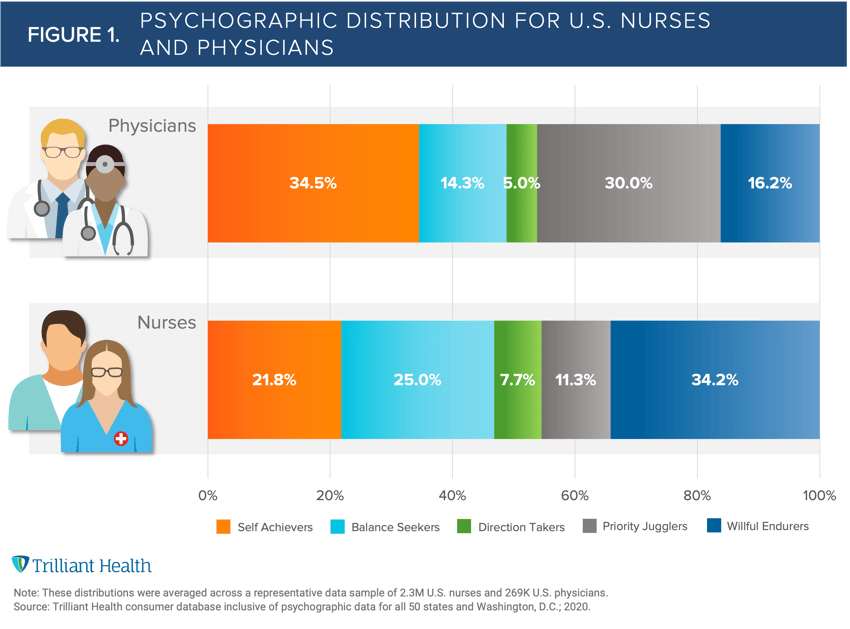Earlier this month, the American Nurses Association wrote a letter to HHS requesting immediate action to address the current U.S. nurse staffing shortage. Burnout stemming from patient care during the COVID-19 pandemic has been attributed as the primary factor for this shortage, as nurses and other hospital staff quit, retire, or seek employment elsewhere. To compound this shortage, many health systems and at least 23 states have announced COVID-19 vaccination requirements for healthcare workers. In addition, CMS has expanded an emergency regulation to require all staff of Medicare- and Medicaid-certified facilities to be vaccinated against COVID-19. Vaccine-hesitant staff may be more inclined to leave their post in response to these health system, state, and national vaccine mandates.
An August healthcare staffing shortage survey from McKinsey & Company reported an average turnover rate of 15.8% and a 12.5% nursing vacancy rate over the prior 12 months. Due to staffing constraints, 48% of respondents reported reduced inpatient capacity in their hospitals. In recent weeks, health systems such as Beaumont Health and Henry Ford have closed more than 120 beds in response to staffing shortages, with some organizations beginning to source nurses internationally. According to state data, more than 100,000 New York hospital workers remain unvaccinated ahead of the September 27 vaccine mandate taking effect, posing growing risks to hospital unit closures.
In determining strategies to mitigate impacts of these staffing shortages, health system executives can apply learnings from effective consumer engagement strategies, which are based upon the psychology of individuals. Thus, health systems must first understand the psychology driving their staff’s decision-making (e.g., COVID-19 vaccination).
In examining the psychographic distributions of physicians and nurses, the differences are revealing. The psychographic distribution of U.S. physicians includes just 14.3% Balance Seekers and 16.2% Willful Endurers, indicating a lower association with vaccine hesitancy. In contrast, we see that on average 34.2% of nurses are Willful Endurers and 25% are Balance Seekers. Notably, Balance Seekers and Willful Endurers are the two profiles most likely to be vaccine hesitant. Moreover, Balance Seekers are also the most likely profile to be associated with burnout. In effect, the disproportionately large number of nurses who are Balance Seekers is a key element in addressing current nursing shortages.

Another compounding factor contributing to nurse staffing challenges is the number of nurses foregoing employment at an individual hospital for travel nursing opportunities. Compensation for travel nurses has dramatically increased, currently reaching upwards of $8K per week, throughout the COVID-19 pandemic, thus incentivizing certain individuals to seek those opportunities. If even a significant number of nurses resign or are terminated because of an unwillingness to be vaccinated, one of two scenarios is likely: either the cost of travel nurses will increase even more, or health systems will decide to reduce staffed beds because of an inability to afford those nurses.
As executives work to address the shortage and look to engage potentially vaccine hesitant staff, health systems should consider tailoring messaging and policies to different occupational types and account for variation in decision-making rationales within each group. For example, communication strategies should be different for Balance Seekers, who are generally most likely to disfavor institutional mandates and are more inclined to be worried about the safety of vaccines, than for Willful Endurers. Despite the current challenges, 70% of Balance Seekers are likely “convertible” about their stance on vaccination, which poses a positive outlook in an environment of vaccine mandates.
Thanks to Timothy Nobles and Katie Patton for their research support.
